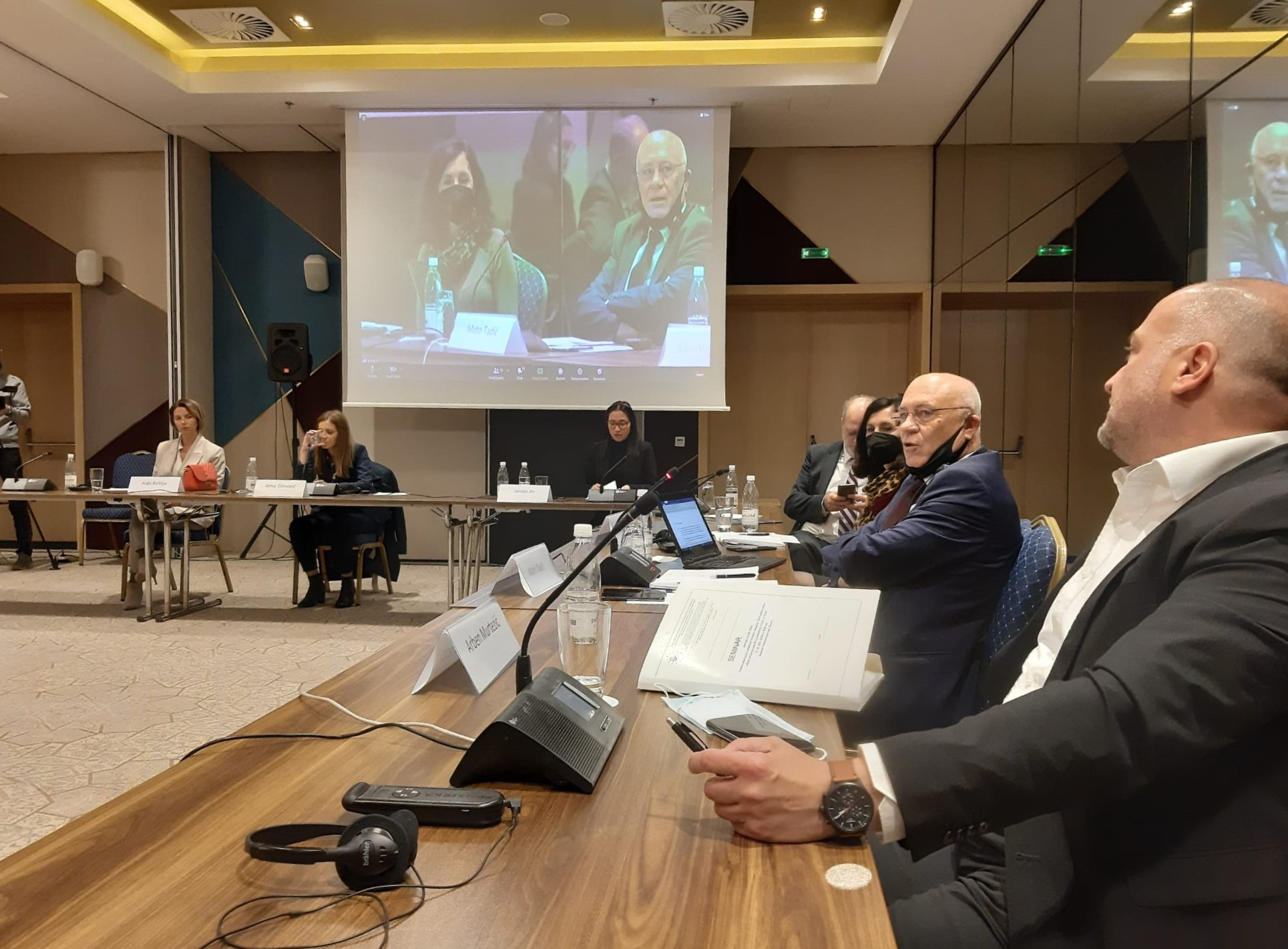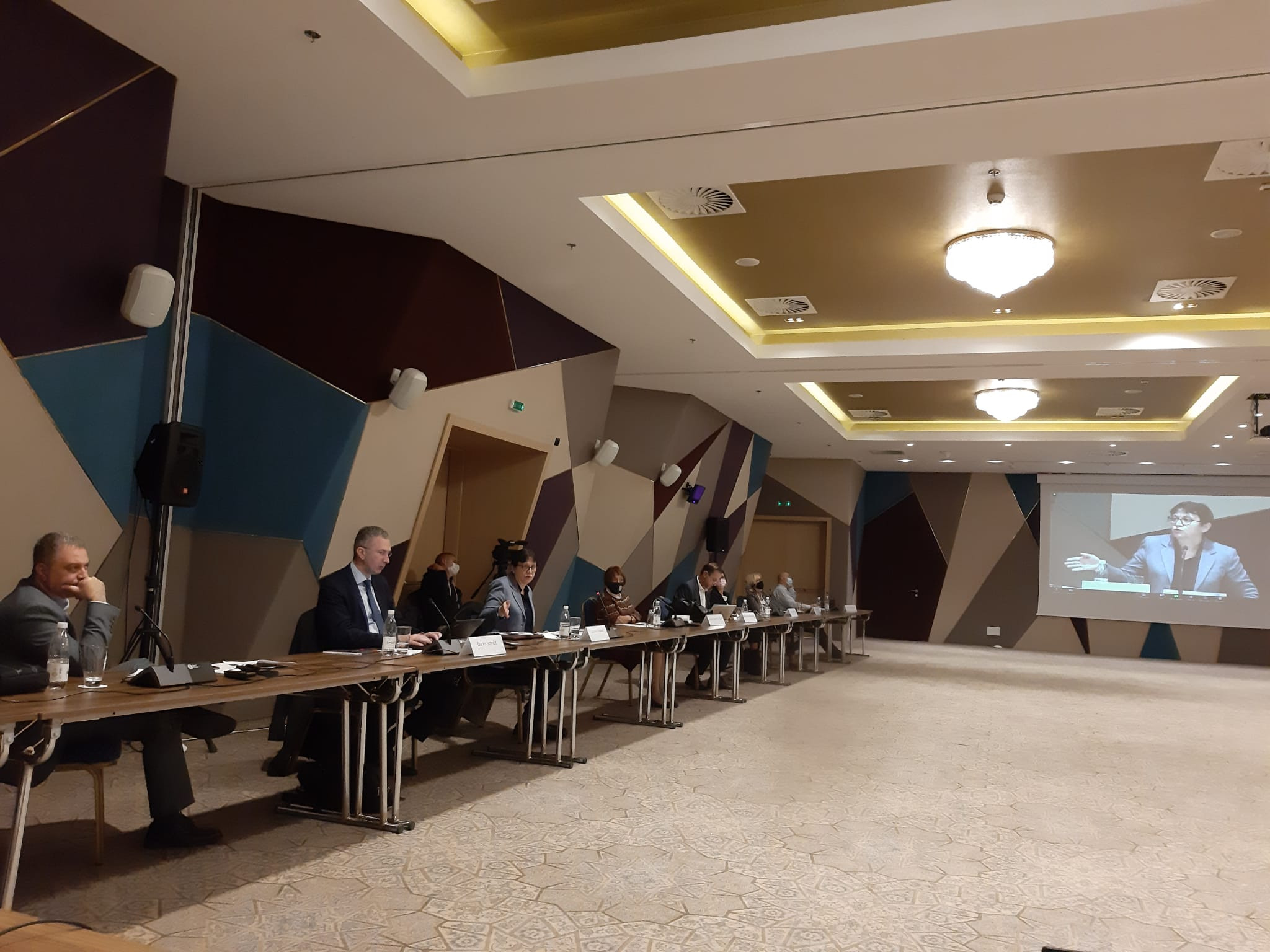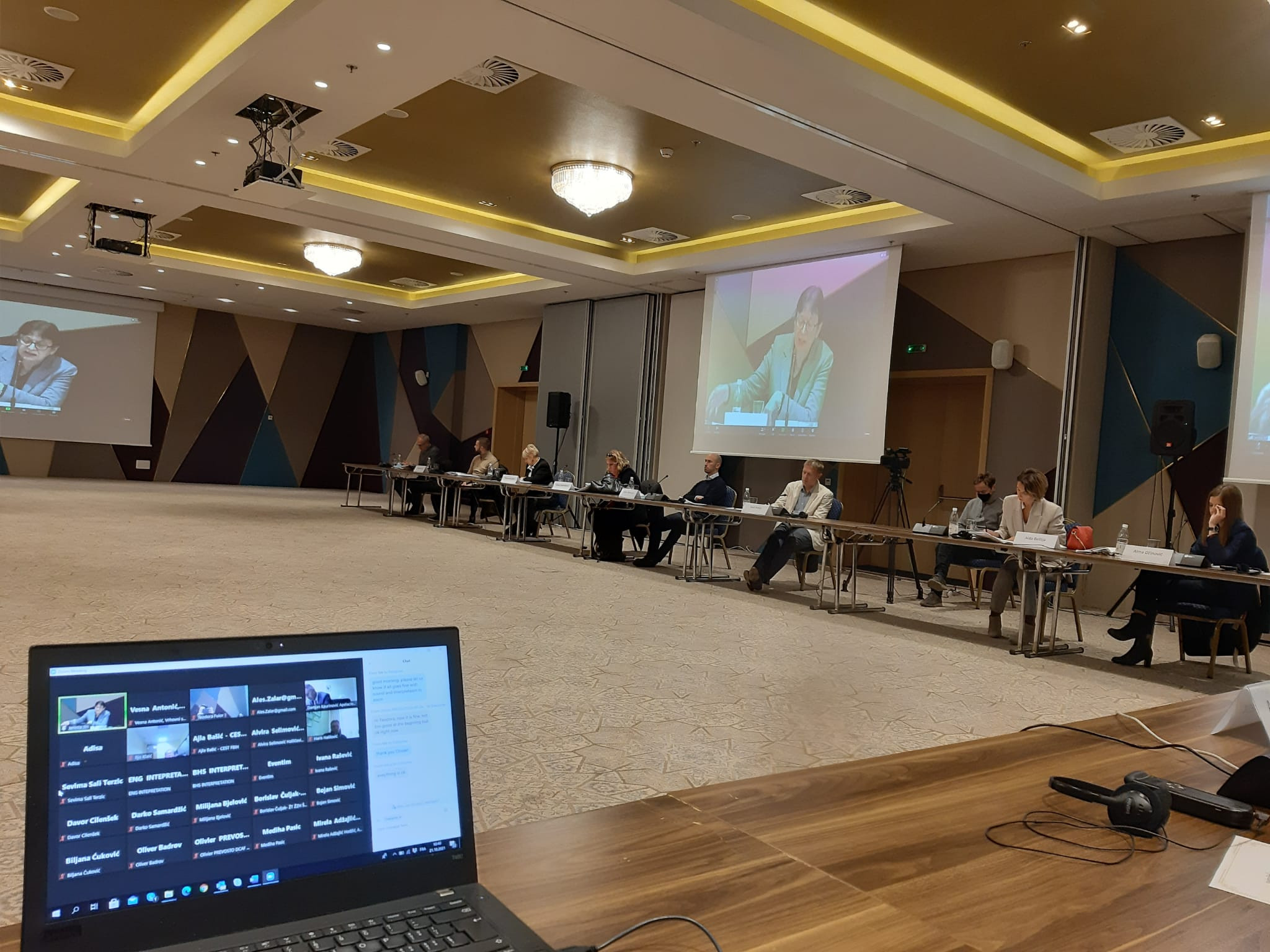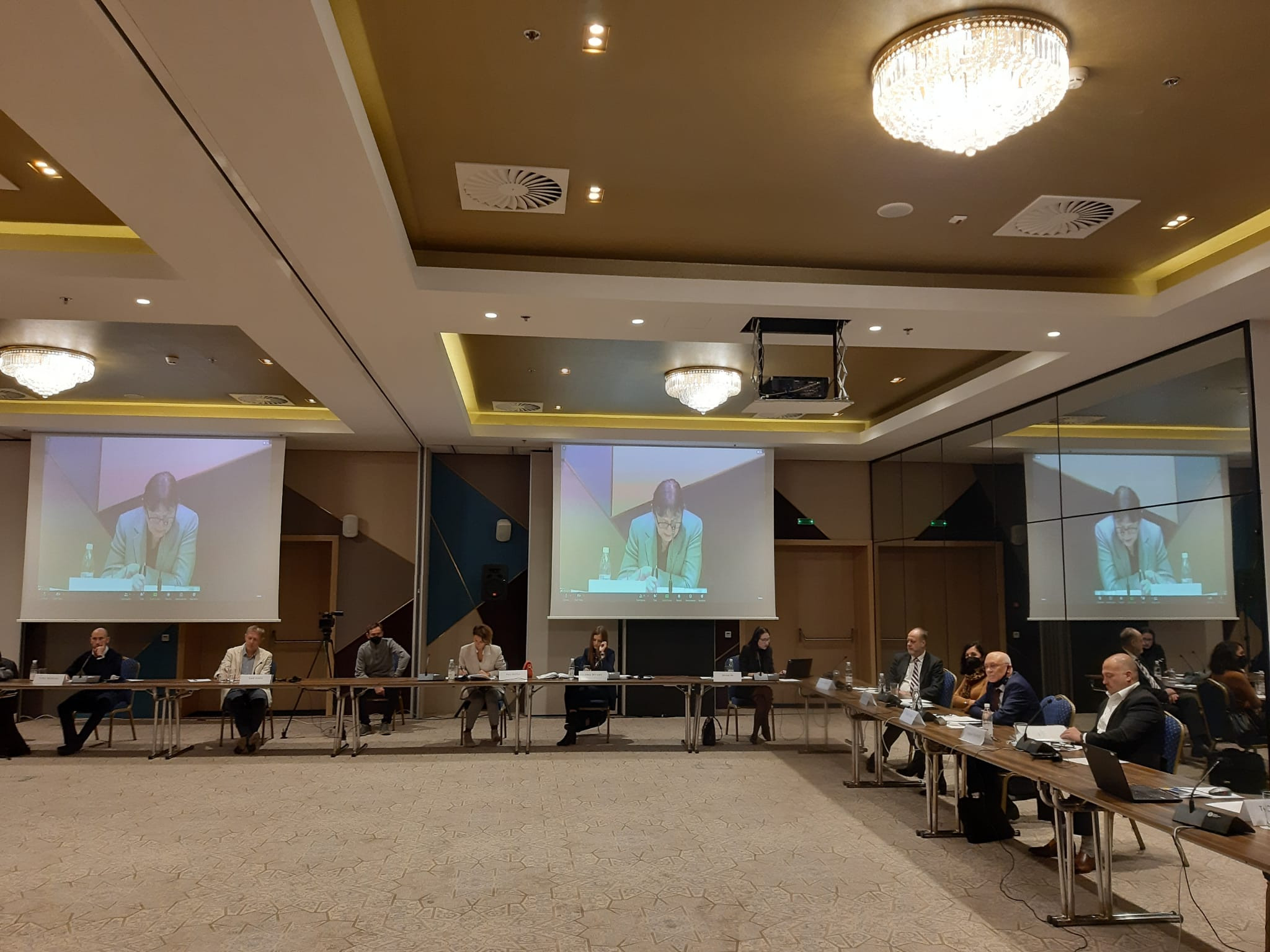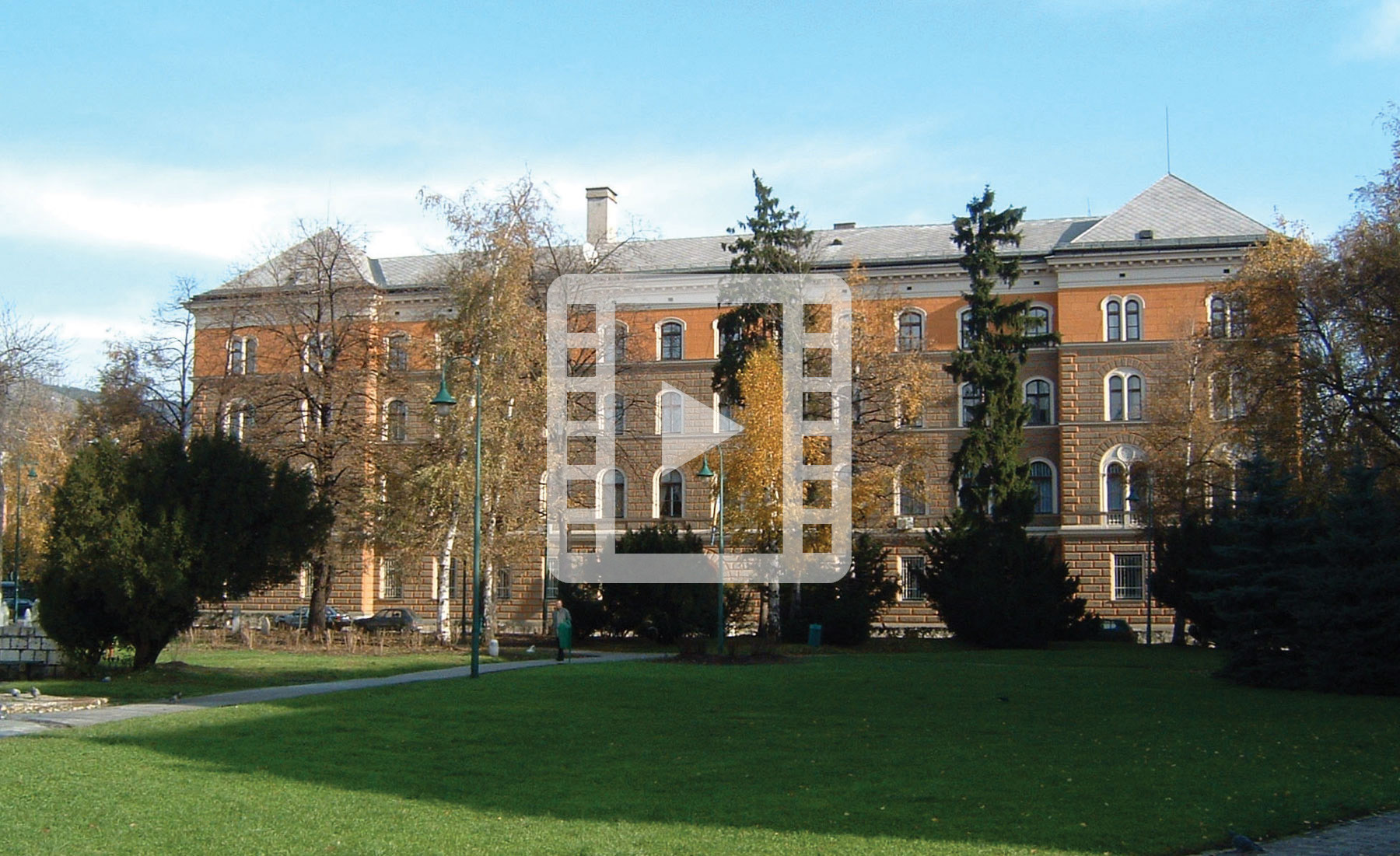On 21 October 2021, the Geneva Centre for Security Sector Governance (DCAF) and the Constitutional Court of Bosnia and Herzegovina, have hosted a roundtable on the topic "Judicial Authorization of Special Investigative Measures: Four Years After BiH Constitutional Court's Decision in Cases U-5/16 and U-21/16". 25 participants have joined the event in Swissotel Sarajevo, while other 30 participants joined online. The aim of the roundtable was to provide a forum for discussing the most relevant changes in legislation, procedure and judicial practice that followed the seminal 2017 decisions of the Constitutional Court of BiH, related with the use of special investigative measures (SIMs).
Mr. Mato Tadić, President of the Constitutional Court of Bosnia and Herzegovina opened the roundtable discussions. Ms. Ermina Dumanjić, Head of the Case-Law Section of the BiH Constitutional Court, Ms. Ivanka Mrkonjić, Head of the Department for Review of Merits of Cases of the BiH Constitutional Court, and Ms. Vanesa Jusufbegović, Senior Legal Advisor, also participated in the discussions.
In June 2017 the Constitutional Court of BiH rendered Decisions in cases U-5/16 and U-21/16, finding some of the provisions of the Criminal Procedure Code of BiH and the Law on the Intelligence and Security Agency of BiH as unconstitutional. These provisions referred to the range and type of offenses triggering the use of SIMs (Art. 117 CPC BiH); the permissible length of these measures (Art. 118 CPC BiH); the timeframe for completion of the investigation (Art. 225 CPC BiH); the conditions for the extension of warrant (Law on OSA, Art. 78). In September 2018, more than a year after the CC BIH decisions, the Parliamentary Assembly of BIH adopted amendments to the Criminal Procedure Code of BiH, replacing the provisions declared as unconstitutional; the other three Criminal Procedure Codes, from FBIH , RS and Brcko District have been subsequently amended, in 2019 and 2020. The Law on OSA BiH has not been amended to this day.
Representatives of the Constitutional Court of BiH, entity supreme courts, the Appellate Court of Brcko District, the Court and Prosecutor's Office of BiH, other judges, prosecutors, members of the academia and DCAF experts, have discussed these recent normative developments, trying to assess if the decisions of the Constitutional Court have been fully implemented, or if legislation still needs to be perfected. Participants reviewed the ongoing efforts for the harmonization of criminal procedure codes in the four BiH jurisdictions and exchanged ideas on how the principles entailed by landmark decisions of the European Court of Human Rights and the good practice from other European countries could inspire the development of local procedure and practice.
Participants agreed that discussions were timely, relevant and highly constructive with the aim of steering what is still an evolving legislation and jurisprudence in BiH in a direction that is in line with European standards and best practice. The way forward in strengthening judicial capacity for an independent control of special investigative measures relies on continued and innovative training, on improving the documentation of local jurisprudence and on the development of new knowledge products tailored for BiH practitioners. DCAF and the the Judicial and Prosecutorial Training Center of FBiH have committed to continue their collaboration in delivering meaningful educational programmes to judges , prosecutors and legal assistants in BIH.
Funded by the Norwegian Ministry of Foreign Affairs, this event was organised in the framework of DCAF Justice and Security Programme which supports justice practitioners in Western Balkans to uphold the rule of law and human rights standards in the use of intrusive methods for information collection.

